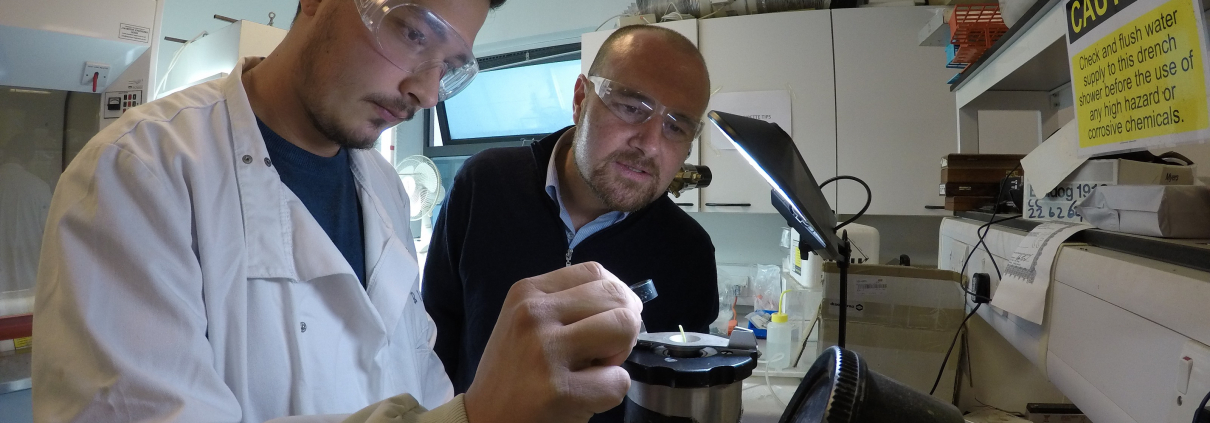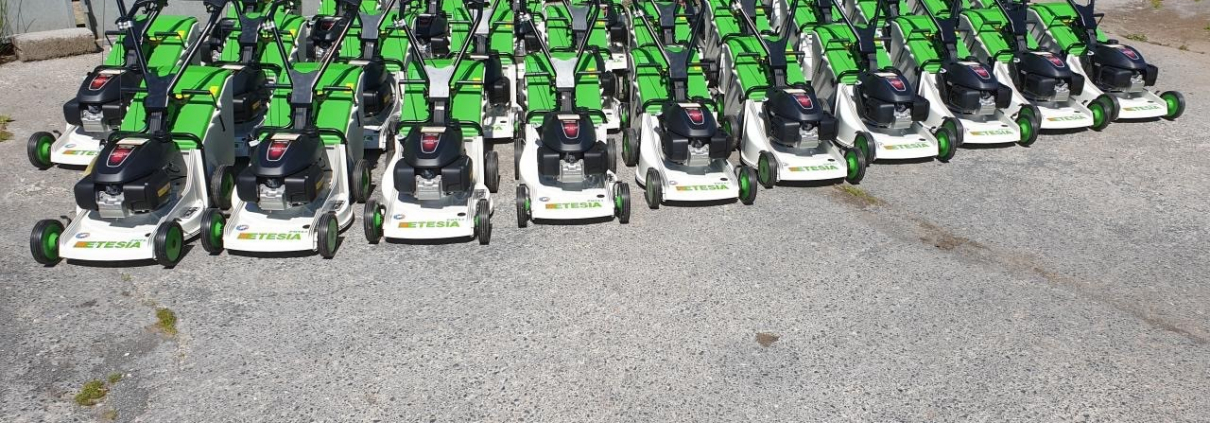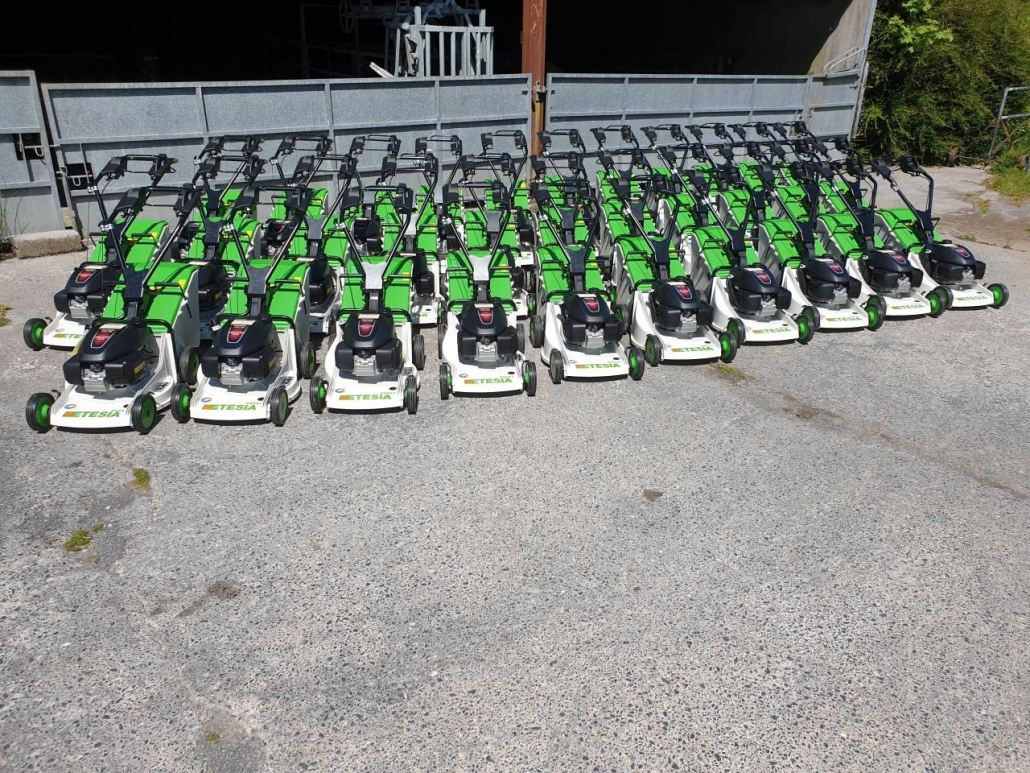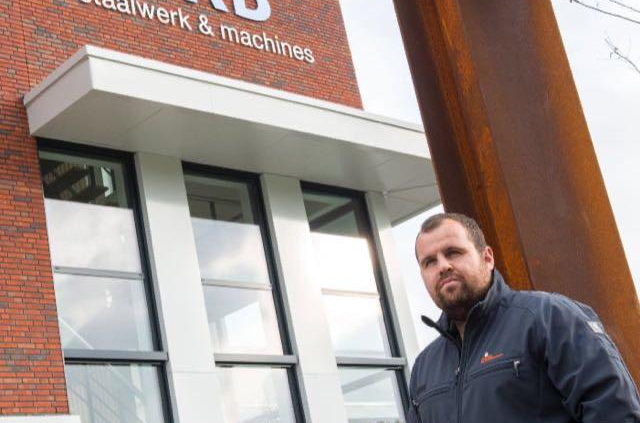Behind the scenes of pioneering research on wetting agents
Behind the scenes of pioneering research on wetting agents: ICL and Lancaster University joined forces in 2017 to conduct a first-time research into the effects of wetting agents on plant physiology.
PhD researcher Vasileios Giannakopoulos committed himself to the three-year project to find out how wetting agents modify soil and plant relations. The outcomes of Vasileios’ research will be used by ICL as scientific support in the development of wetting agents. We spoke to him about his work as a PhD researcher. What does a day at work look like? What are his challenges? What are the results so far? How does he see the future of wetting agents? Vasileios: “There has been very little similar research, so we have no comparison. It is very exciting.”
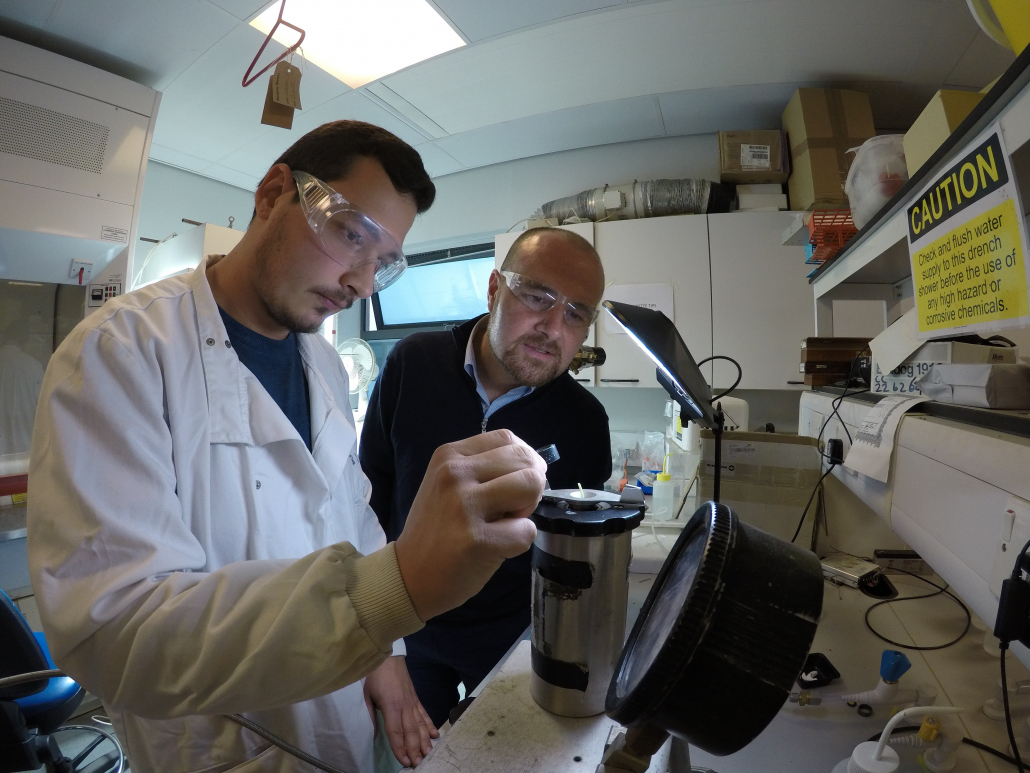
Behind the scenes of pioneering research on wetting agents
Vasileios (also named ‘Billy’, which is the translation of his name in English), started his academic career at the Alexander Technological Educational Institute of Thessaloniki, Greece. He received his Bachelor in Agricultural Development and Agribusiness Management in 2017. Part of his study was a 6-month internship at the Nafferton Ecological Farming Group at Newcastle University in the UK. In 2017 he started as a PhD researcher in Plant Physiology at Lancaster University (Lancaster Environment Centre). Vasileios: “When I returned to Greece and finished my studies, I looked for PhD positions in plant physiology and particularly in plant-water relations. I was interested in Lancaster Environment Center as it is one of the biggest environment centers in Europe. I applied for this PhD, because the topic of wetting agents on water-use efficiency is relatively new and very interesting.”
What the research is all about
Wetting agents, or surfactants, are chemical substances that increase the spreading and penetrating properties of water by lowering its surface tension. Previous studies on wetting agents mainly focused on how the products mitigate soil water repellency and improve water distribution. But in collaboration with ICL, Vasileios now investigates how wetting agents modify the soil and plant-water relations.
It is the first time that such an in-depth research on plant physiology is being conducted. And with growing demand, droughts, and environmental awareness, this research is more relevant than ever. Vasileios: “We are working with ICL’s wetting agents (H2Pro TriSmart, H2Pro AquaSmart, and H2Pro FlowSmart) to look at the effects on water use efficiency and nutrient use efficiency. Wetting agents are now mainly used in the turf industry and are very efficient in fighting soil water repellency and localized dry spots, but with this research we can prove its benefits on a plant physiology level and open doors to other industries as well.”
In this research, Vasileios works with different species of grasses, mainly barley (Hordeum vulgare) and perennial ryegrass (Lolium perenne ). In the past 3 years many tests were done with wetting agents in the glass house and lab of Lancaster University: 1) Vasileios tested whether wetting agents alter soil water availability (meaning the way water is attached to the soil and the ease with which soil water is extracted), 2) he measured transpiration under elevated evaporative demands conditions (high and low air humidity), 3) he measured root traits (length, surface area and volume) and 4) stomatal conductance (the rate of CO2 entering or water vapor exiting the stomata of the leaf.
A day at work
Vasileios switches a lot between the office, the glass house and the lab. When he has an experiment going on, he might spend the entire day in the glass house or lab conducting measurements. Experimenting with plants requires patience as plants need time to grow. Vasileios: “During these periods I mostly work in the office. In the office I will analyze data from previous experiments, write up chapters of my thesis, read papers, search literature. Most of these tasks are interconnected. If you want to write something, you start with researching papers and literature.”
The results so far
With only 6 months to go, the research shows promising results. Vasileios found that wetting agents increase root access to water. This could mean that wetting agents optimize drought resilience in plants. If this is scientifically proven, that would be a huge benefit of using wetting agents. Vasileios also found that the stomata of leaves were slightly more open when a wetting agent was applied. Vasileios: “I noticed that across 4 different humidities (from high to low) wetting agents increase the transpiration from the leaves of well-watered plants.”
Whether wetting agents improve nutrient uptake is not yet scientifically supported, because Vasileios is in the middle of the testing phase. Vasileios: “Apart from the current results, I hope to come with a positive answer on the nutrient uptake soon. When I started this PhD, I didn’t know what to expect as there are no previous studies on this subject, but I am certainly not disappointed with the results until now.”

Behind the scenes of pioneering research on wetting agents
What it takes to be a PhD researcher
Who thinks that a PhD is all about experimenting in a laboratory is wrong. It is mainly about communication. Reports, scientific papers, research, experiments, analyses of data: you may find yourself writing about 60% of the time. Vasileios: “It was quite a challenge in the beginning, especially because English is not my first language. I was used to scientific writing in Greek.”
Besides writing, Vasileios mentions three others skills that a PhD researcher must learn: public speaking, collaboration, and problem solving. Vasileios: “I work on an individual project with people in the same lab or office. This means I have to be able to work in a team as well as independently. You can seek advice, but some difficulties you have to encounter on your own. Learning to be inventive in solving problems really made my life a lot easier.”
During his PhD, Vasileios has had to present his work to different audiences. Public speaking was quite new to him and to present data in an understandable way was a challenge. He is still learning. Vasileios laughs: “When no one has any questions after a presentation, you can wonder whether the presentation was very clear or very confusing.”
Industry involvement
In this three-year research ICL’s H2Pro range wetting agents are used: TriSmart, AquaSmart, and FlowSmart. As a global leader in specialty fertilizers, ICL finds it important to invest in research and development and is always eager to gain new knowledge. The outcomes of Vasileios’ research will become important scientific support for the development and responsible use of wetting agents. Vasileios: “ICL is an expert in wetting agents and has a great R&D department. They really know their products and have been very active throughout my research. We have meetings frequently and their advice is an important contribution to my research.”
The involvement of ICL bridged a gap between the industry and academic world. Vasileios: “Though I love the lab, this is not the real world. We really benefit from getting input directly from the industry. And it is also good to be reminded of who will benefit from the outcomes of my research: the turf managers, the growers, and the farmers.”
Future plans
At the moment Vasileios is working from home. The university is closed due to the coronavirus and the work that he still needs to do in the lab is postponed. He is awaiting news from the university and hopes to complete his experimental work and finalize his research by September 2020. He hopes that he can continue in academic research as there are always new questions to be answered. Vasileios: “I will never exclude a job in the industry, but I do feel at home in the academic world. With this PhD, I feel we have opened a door to something new. The demanding future will want us to become more efficient with water, fight droughts and improve plant resilience, so this is rather the beginning than the end of our research.”
Please contact ICL on 01473 237100 or visit www.icl-sf.co.uk or www.icl-sf.ie if you are in Ireland.
For more news and insightful views, you can follow ICL on Twitter @ICL_Turf
For the latest industry news visit turfmatters.co.uk/news
Get all of the big headlines, pictures, opinions and videos on stories that matter to you.
Follow us on Twitter and Instagram for fun, fresh and engaging content.
You can also find us on Facebook for more of your must-see news, features, videos and pictures from Turf Matters.

